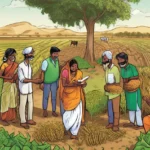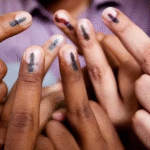Lucknow, 2025 — Uttar Pradesh (UP) is often viewed as a microcosm of India, where political, social, and economic experiments provide insights not only for the state but for the entire country. With its diverse demographic makeup and significant political weight, UP serves as a laboratory for innovative political ideas and governance models. This article explores how UP experiments with various political ideas, influencing broader national policies and strategies.
Diversity as a Testing Ground
- Demographic Complexity
- Variety of Voters: UP’s demographic diversity, including various castes, communities, religions, and socio-economic groups, makes it an ideal testing ground for political parties to trial new policies and approaches.
- Pilot Programs: Government schemes related to education, health, and social welfare are often piloted in UP to test their effectiveness and feasibility before a national rollout.
- Political Innovations
- Election Strategies: Political parties use UP to test different campaign strategies and messaging, leveraging the state’s complex social fabric to gauge what resonates with voters on a larger scale.
- Technology Use: The adoption of digital campaigning tools and data analytics in UP helps parties refine their national election strategies.
Policy Experimentation and Impact
- Governance Models
- Decentralized Governance: Initiatives to empower local bodies, such as panchayats and municipal councils, are tested in UP to evaluate their effectiveness in improving governance and local development.
- Public Participation: Experimental approaches to increase public participation in the legislative process, such as through town hall meetings and public consultations, are often initiated in UP.
- Social and Economic Policies
- Agricultural Reforms: Given UP’s large agricultural sector, reforms like new procurement policies, subsidies, and technological integration are first introduced here to monitor impacts on productivity and farmer incomes.
- Urban Development: UP’s rapidly urbanizing landscape makes it a prime location for testing urban development projects, including smart city initiatives and public transport systems.
Impact on National Politics
- Setting Precedents
- Policy Benchmarks: Successful policies in UP often become benchmarks for national policies. For example, welfare schemes that gain traction in UP, such as maternity benefits or minimum wage increases, may be adopted at the national level.
- Legal and Administrative Reforms: Innovations in administrative efficiency and corruption reduction in UP can inform broader governance reforms across India.
- Cultural and Social Experimentation
- Social Justice Initiatives: Efforts to enhance social justice and equity in UP, particularly regarding caste and gender issues, provide valuable lessons for similar national initiatives.
- Cultural Policies: Programs that successfully promote cultural heritage and communal harmony in UP can inspire similar efforts nationwide.
Challenges and Opportunities
- Scalability of Success
- Adaptation Challenges: While successful experiments in UP offer valuable insights, adapting these successes to other regions with different contexts can be challenging.
- Sustainability: Ensuring that successful pilot programs in UP are sustainable and scalable is critical for national implementation.
- Learning from Failures
- Feedback Mechanisms: Failures in political and policy experiments in UP are equally important, providing crucial feedback that helps refine approaches and avoid similar pitfalls in other states.
Conclusion: A Crucible of Political Innovation
Uttar Pradesh’s role as a political laboratory allows for the experimentation and refinement of ideas that shape the entire country’s political landscape. By understanding what works and what doesn’t in UP, policymakers can better design and implement strategies that address the diverse needs of India’s population. As UP continues to innovate, its experiences will undoubtedly continue to influence India’s path towards inclusive growth and development.



























